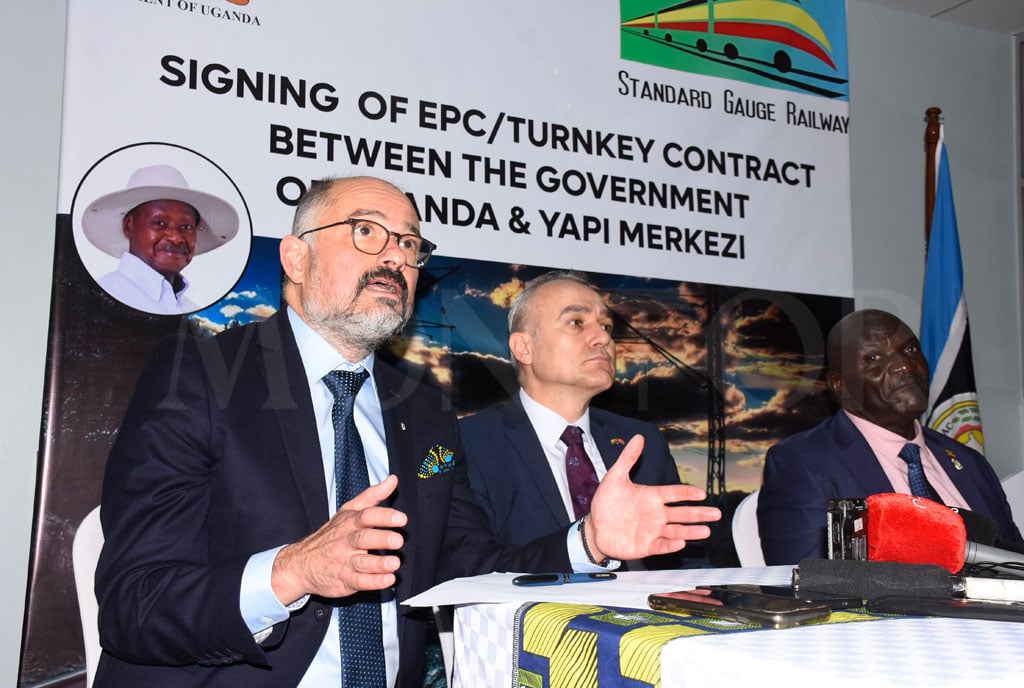State entities defend financial performance amid rising debts

One of the projects of National Water and Sewerage Corporation, a government-owned utility, under scrutiny for its financial obligations. Photo credit: NWSC
What you need to know:
The report highlights the financial status of key entities, including Uganda Electricity Distribution Company Limited (UEGCL), which had a budget of Shs216.1 billion in 2022/23 and a debt ratio of 88%, amounting to Shs190.2 billion
Government-owned enterprises have responded with mixed reactions to the December 2023 Auditor General's report, defending their financial performance while expressing concerns about the accuracy of government reporting.
The report highlights the financial status of key entities, including Uganda Electricity Distribution Company Limited (UEGCL), which had a budget of Shs216.1 billion in 2022/23 and a debt ratio of 88%, amounting to Shs190.2 billion. UEGCL officials attributed this to the energy billing approach, which has hindered the company’s ability to efficiently service its loan due to lower revenues.
Uganda Electricity Transmission Company Limited (UETCL) operated with a budget of Shs134.7 billion in the same financial year, with its debt standing at Shs88.9 billion. The company’s debt primarily arose from the financial liability on the buyout amount of UMEME, which currently manages Uganda’s electricity distribution.
National Water and Sewerage Corporation (NW&SC) saw its debt ratio rise from 65% to 67%, a change the company attributes to the implementation of various water projects across the country. According to the report, NW&SC’s asset base is projected to grow from Shs3.5 trillion to Shs4.5 trillion through government support by reinvesting surplus funds into infrastructure expansion.
Samuel Apedel, Director of Public Relations at NW&SC, defended the company’s performance, stating that the focus is on expanding services to unserved Ugandans. By 2027, the corporation plans to increase water connections from 950,000 to 1,135,000, serving an additional 3.6 million people.
Enok Kusasira, Head of Communication and Corporate Affairs at Uganda Electricity Generation Company Limited (UEGCL), mentioned that the company is servicing the Isimba Dam loan, which adds to its debt burden. He emphasized that higher electricity demand is crucial for generating the revenue needed to service the loan.
Jonan Kiiza, spokesperson for UEDCL, highlighted the company's need for network investments and new connections, requiring approximately USD 70 million annually. UEDCL achieved a profit of Ush 10 billion (USD 2.5 million), which was reinvested in the business, resulting in no dividends for shareholders.
However, Kiiza pointed out that the business deficit in the overall income and expenditure statement is due to the Electricity Regulatory Authority’s (ERA) refusal to charge depreciation or asset recovery on UEDCL assets operated by UMEME Limited.
The Auditor General’s report emphasized that public corporations and state enterprises were established to ensure efficient management of government operations and service delivery to citizens. The former Auditor General, John Muwanga, urged unprofitable companies to implement strategies to improve their performance and meet government expectations.




